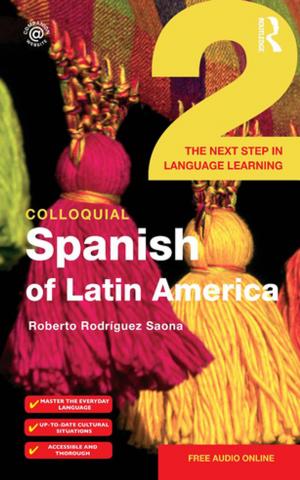Custom
An Essay on Social Codes
Nonfiction, Social & Cultural Studies, Social Science, Cultural Studies, Customs & Traditions, Sociology| Author: | ISBN: | 9781351523899 | |
| Publisher: | Taylor and Francis | Publication: | February 6, 2018 |
| Imprint: | Routledge | Language: | English |
| Author: | |
| ISBN: | 9781351523899 |
| Publisher: | Taylor and Francis |
| Publication: | February 6, 2018 |
| Imprint: | Routledge |
| Language: | English |
In Custom , Ferdinand Tonnies illustrates the relationship of custom to various aspects of culture, such as religion, gender, and family. Tonnies argues that all social norms are evolved from a basic sense of order, which is largely derived from customs. As such, custom refers to the ideal, and the desirable, and it mediates subjective aspects of social life. Tonnies makes observations in Custom that are just as true today as when they were written over a century ago. The pivotal idea in Tonnies work is the observation that custom, like its individual counterpart habit, has three distinct aspects: a fact--an actual way of conduct; a norm--a general rule of conduct; and a will. The analysis, extended into the field of collective behaviour, helps to explain how far custom can be regarded as a manifestation of a common will. Custom is a classic contribution in the grand canon of law and society scholarship. Moreover, the volume introduces several key elements of Tonnies' work focusing on broader sociological thought, which benefits both the theoretical understanding of law as an object of social science reflection, as well as provides empirical insights into the roles of law in society.
In Custom , Ferdinand Tonnies illustrates the relationship of custom to various aspects of culture, such as religion, gender, and family. Tonnies argues that all social norms are evolved from a basic sense of order, which is largely derived from customs. As such, custom refers to the ideal, and the desirable, and it mediates subjective aspects of social life. Tonnies makes observations in Custom that are just as true today as when they were written over a century ago. The pivotal idea in Tonnies work is the observation that custom, like its individual counterpart habit, has three distinct aspects: a fact--an actual way of conduct; a norm--a general rule of conduct; and a will. The analysis, extended into the field of collective behaviour, helps to explain how far custom can be regarded as a manifestation of a common will. Custom is a classic contribution in the grand canon of law and society scholarship. Moreover, the volume introduces several key elements of Tonnies' work focusing on broader sociological thought, which benefits both the theoretical understanding of law as an object of social science reflection, as well as provides empirical insights into the roles of law in society.















